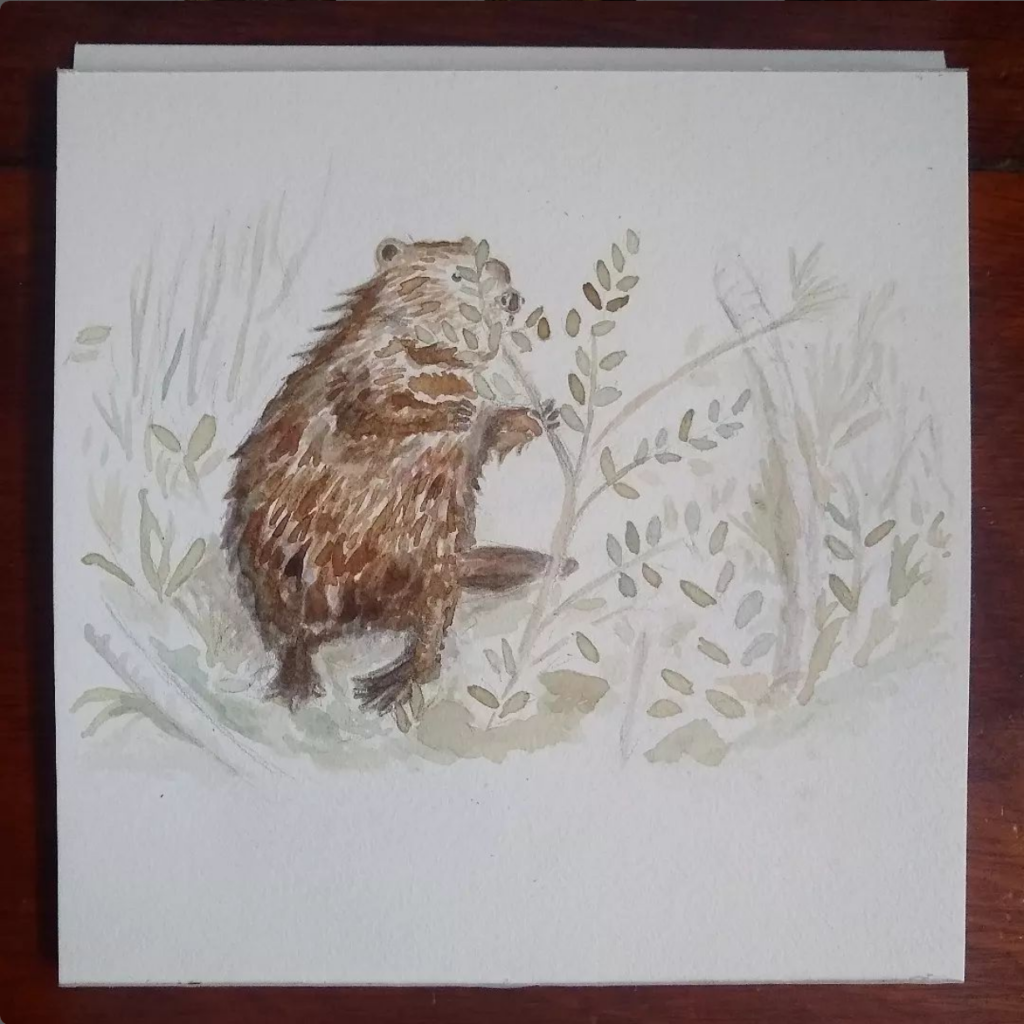
Beaver sketch, painted with acorns, wild grape, avocado pits and oak galls. Based on a b&w photograph by Hope Ryden.
//
For 2024, I’ve resolved to be busy as a beaver.
But not busy as the beavers in my cartoon-simple conception of them, but busy as wild beavers are. And it seems I need to practice a very different way of being busy, if I would like busy beavers to recognize me as kin.
Thanks to these beautiful observations by Hope Ryden (from her book “Lily Pond: Four Years with a Family of Beavers”), I have some idea where to start:
“…Despite the descriptive epithet often applied to the species, beavers are not ‘busy’ animals. On the contrary, they normally proceed at a leisurely pace, unburdened by outside pressures. One stick at a time they drag up on their house, one load of mud at a time they push onto their dam. After doing a certain amount of work, they take a break to feed or groom or play or just float about in the water.
…
Few species, in fact, appear so oblivious to stress as does Castor canadensis. House wrens, for example, build their nests in a kind of frenzy, as if tyrannized by their seasonal timetable. Not beavers. … One handful of mud at a time, they scooped from the bottom of the pond. And, pressing this against their chests, they paddled slowly to the dam, and shoved it up into the crest. As unhassled as they appeared, however, they were in fact accomplishing two tasks at once–deepening a channel and raising the height of a dam.Beavers work like that. Interrupting one operation to transport its byproduct to a site where that debris is wanted…
All waste products are recycled: dredged mud becomes house insulation or dam sealant; debarked food sticks become house or dam lumber; wood chips (fallout from a tree-felling operation) are brought to the lodge and spread on the floor for bedding. In this admirably relaxed manner, the efficient beaver accomplishes an enormous amount of work. Watching [beavers] is like attending a morality play, and I often thought I ought to take a lesson from it.”
~Hope Ryden, “Lily Pond”
